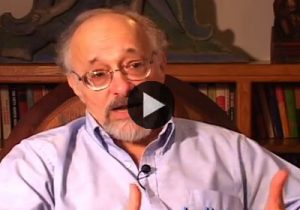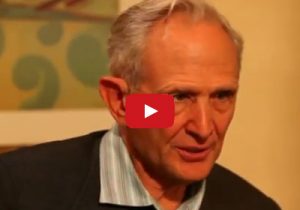VIDEO: Dr. Allan Schore on Hypo-Arousal, Hyper-Arousal, Dissociation and the Inability to Take in Comfort
Watch an excerpt from PsychAlive’s interview with Dr. Allan Schore.
Dr. Allan Schore talks about hypo-arousal, hyper-arousal, dissociation and the inability to take in comfort.
Dr. Allan Schore: It’s pretty clear that, you know, that the externalizing pathologies go more towards the males, the internalizing psycho-pathologies go more toward the females. So that you have more males going into hyper-arousal or more females going into dissociation. But clearly the rage states, when they are dissociated, by definition, they will be directed back into the self. And into the body. And ultimately, ultimately over long periods of time, what you’re looking at is possibilities of a psycho-somatic disease in that kind of a situation, too. So, yes, I mean, if the anger can’t even be felt in the body as part of the self, then it can’t even be communicated, it can’t even be used an effective defense mechanism, as an effective coping mechanism here, etc. And very frequently.
So what I would think is that ultimately what we’re looking at internally, when there are these high states of hyper-arousal, if these were of the aggressive systems – the normal aggression system, which is lateralized on the right side, incidentally — now you’re talking about between the right orbital frontal cortex, down onto the hypothalamus, etc. – in that case, you would have the rage states literally driven into the body and ultimately would come out in this attacking self, which literally, viciously, you know, takes apart and disintegrates the self.
Now some of that could also be a reflection of early experiences, because at a later point in time, this relational trauma would take the form of humiliation; humiliation will activate both the sympathetic and the para-sympathetic nervous system extremely dis-regulating, etc. Contempt and aggression, humiliation, so, what you have here is an internalization of an earlier attachment situation. But again, it’s not just that: there’s no system to turn it off. There’s no system to turn it off. No higher system that the person can use and also, because the person is sealed, so to speak, there’s no way that one can reach out to another and take in the comfort.
And on that matter, I want to make one other point to that. It’s the inability to take in the comfort. I mean, we’re always – what normal intimate dyads do is they is we co-regulate our states with each other. We co-regulate our states with each other. And we bring our heart rates, you know, back down, sympathetic, nice para-sympathetic, etc. But the key there is taking in comfort. Well, these patients, because of their sealed world, because of their dissociation, are not able to take in the comfort. And that becomes a critical issue. And incidentally, that would be tied right in to the safety and trust issue, also.
So this matter about saying comfortable things and then thinking that automatically, they’re going to be taken in, is too simplistic an idea of literally how this unconscious system works in the first place and how the body works in the first place. Remember again – the pathology here, the severe deficit, is not in the conscious left hemisphere. That’s still running along. It’s literally in the unconscious system itself. It’s on the system which non-consciously processes information, which anticipates, etc. and the question is, “How do we work directly in that system with our own system right brain to right brain?”
Tags: comfort zone, video









Leave a Reply
You must be logged in to post a comment.